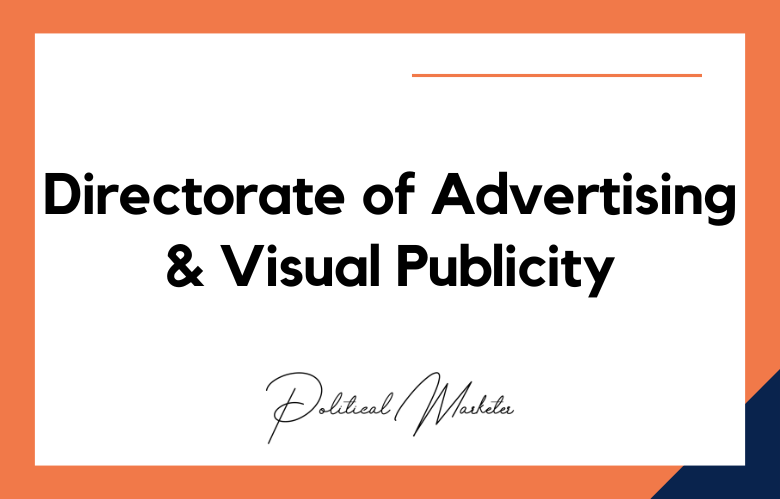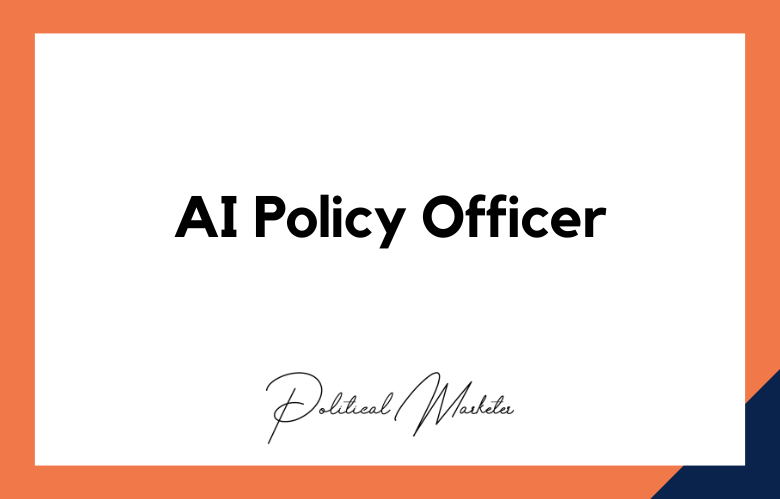With the advent of machine learning and artificial intelligence, it is undeniable that politics and public relations have undergone significant changes, upending traditional methods of communication and strategy development.
Campaigns and politicians utilize sophisticated algorithms to understand voter behaviors better and craft targeted messages. As AI continues to transform the political landscape, it’s essential to understand precisely what those changes are and how they will impact political public relations.
What is Political Public Relations in the Age of Artificial Intelligence?
As technology continues to evolve, how we communicate and engage with the world around us is also changing rapidly. This is true of political public relations just as much as it is for any other field.
In the age of artificial intelligence, political public relations is being transformed in ways that would have seemed unimaginable only a few years ago. We will explore political public relations, how it is changing with the advent of AI, and what this means for how politics is conducted.
First, defining what we mean by political public relations is essential. Political public relations manages the communication and perception of political actors and ideas.
This can take many forms, including social media campaigns, speeches, press conferences, and other types of media outreach.
In the past, political public relations generally relied on a small team of experts who would craft and disseminate messages to the public. However, today’s political landscape is more complex, and AI plays an increasingly important role.
The Role of AI in Political Public Relations.
AI has transformed the way political campaigns are run. It has helped politicians track voter sentiment, evaluate public opinion, and make data-driven decisions.
AI-powered tools like chatbots and personalized messaging have enabled politicians to reach a wider audience, engage with voters on a deeper level, and tailor their messages based on the needs of individual voters. This, in turn, has helped political parties to target their campaigns more effectively and obtain better results.
The Impact of AI on Political Journalism
AI has also had a significant impact on political journalism. The media has always been a powerful tool for shaping public opinion. With the help of AI, news outlets can now analyze vast amounts of data to understand what people are talking about.
AI-powered tools can highlight trends, detect fake news, and predict future events. This has made political news more relevant, timely, and personalized, leading to a more informed electorate.
The Ethical Implications of AI in Political Public Relations.
While AI has undoubtedly transformed political PR, concerns about its ethical implications exist. For example, AI can be used to create deepfakes that can spread false information or influence public opinion.
AI can be biased if the algorithms used to derive insights aren’t impartial. This could lead to unfair advantages for specific candidates or political parties.
The Future of AI in Political Public Relations.
With AI evolving at an exponential rate, it’s hard to predict how it will shape political PR in the future. However, one thing is sure – AI will play an increasingly important role in political campaigning and public relations.
AI-powered tools will continue to improve, making campaigns more efficient and targeted. Social media platforms will also integrate AI-powered features like chatbots to engage with voters. While there are many implications to consider, the future of political PR looks bright.
The Importance of Human Interaction in Political Public Relations.
While AI can be a powerful tool in political PR, it’s important to remember that it’s not a substitute for human interaction. Ultimately, politics is about building relationships and trust, which can only be achieved through face-to-face interactions.
Human interaction also allows politicians to connect with voters personally, understanding their concerns and needs. AI can complement human interactions, but it cannot replace them entirely.
Best Practices for Political Public Relations in the Age of Artificial Intelligence.
AI-powered predictive analytics
AI has allowed political PR firms to harness the predictive analytics capabilities of machine learning algorithms. This translates to more accurate predictions about voter preferences and opinions.
By analyzing social media posts, search trends, and other online activities, politicians can tailor their messages to resonate with specific types of voters. This level of precision targeting has never been possible before, and it is reshaping how political PR firms approach communications.
Social media monitoring
Social media is a potent tool when used correctly, and AI has dramatically increased the impact it can have. PR groups are going beyond simple monitoring tools and adopting sophisticated machine learning algorithms that allow them to analyze patterns in data from millions of social media posts.
Politicians can develop messages to connect with their audience by identifying trends and sentiment shifts. Indeed, politicians even use chatbots to communicate with their followers on social media platforms like Twitter and Facebook.
Virtual assistants
Virtual assistants like Amazon’s Alexa and Apple’s Siri are still primarily used in personal spaces like homes and cars.
However, some politicians have explored having a virtual assistant act as a political aide, providing real-time information about voting records, current legislation, and other vital issues.
These virtual assistants can also help politicians as they speak with their constituents, providing them with contact information and background data on each person they speak with.
Ethical concerns
As with any new technology, there are ethical concerns surrounding the use of AI in political PR. For example, some worry that the level of data analysis possible through machine learning is an invasion of voters’ privacy.
Others believe that AI could be used to hide or suppress certain voices or ideas in an election. And while virtual assistants can be a boon for busy politicians, there are concerns about potential misuse or abuse. Political PR firms must grapple with these issues, balancing the benefits of AI with its potential negative impacts.
The Future of AI in Political PR
As AI technology continues to improve, we can expect political PR firms to become increasingly reliant on the insights machine learning brings.
Some predict that, eventually, we will see AI-powered political PR machines completely replacing human teams. But while AI is undeniably powerful, humans can still imagine, empathize, and connect with voters in a way no machine can.
AI will undoubtedly continue to play an essential role in political PR, but we must remember that it is only a tool that must be used ethically and with care.
Conclusion:
The impact of AI on political PR is undeniable. The development of more accurate predictive analytics, social media monitoring, virtual assistants, and other AI-powered tools has wholly transformed how political PR and campaigns operate.
While there is great potential for benefits in reaching voters and crafting targeted messages, we must be wary of the side effects.
AI can be a double-edged sword, and it is up to political PR firms to balance the benefits and risks of its use. Moving forward, AI must be used ethically and judiciously, always aiming to serve better and represent the public’s interests.
Call: +91 9848321284
Email: [email protected]
Political Public Relations in the Age of Artificial Intelligence: FAQs
What Is Political Public Relations In The Context Of AI?
It strategically manages a politician’s public image, messaging, and reputation using AI tools to analyze data, forecast trends, and automate outreach.
How Is AI Changing Traditional Political PR Strategies?
AI enables faster sentiment analysis, real-time reputation monitoring, personalized communication, and predictive modeling of public behavior.
What Role Does AI Play In Crisis Management For Politicians?
AI tools can detect early warning signs of negative sentiment and generate data-driven response strategies during reputational crises.
Can AI Help Politicians Personalize Their Public Messaging?
AI analyzes voter data to craft hyper-targeted messages based on demographics, interests, and behavioral insights.
How Does AI Improve Media Monitoring In Political PR?
AI-powered tools scan thousands of media sources in real time to detect mentions, tone, reach, and potential threats to a politician’s image.
Are AI Chatbots Used In Political PR Campaigns?
Yes, chatbots are used for voter engagement, FAQs, feedback collection, and maintaining round-the-clock communication with the public.
What Are The Risks Of Relying On AI In Political Public Relations?
Overreliance can lead to ethical issues, data misuse, loss of human nuance in messaging, and potential algorithmic bias.
How Can AI Enhance Press Release Distribution?
AI tools determine the best timing, channels, and audiences for press releases based on historical engagement data and media patterns.
Can AI Detect Fake News Or Disinformation Targeting Politicians?
Yes, AI can identify the spread of fake news, its origin, velocity, and impact, allowing teams to intervene with counter-narratives.
What Is The Role Of Sentiment Analysis In Political PR?
Sentiment analysis uses AI to measure public emotion across platforms, helping shape proactive or corrective messaging.
How Do Political PR Teams Use Predictive Analytics?
They use predictive analytics to anticipate media reactions, voter behavior, and the success of communication strategies before they are executed.
Is AI Used For Speechwriting Or Content Generation In PR?
Yes, AI language models assist in drafting speeches, social media posts, and policy content tailored to the intended audience.
How Can AI Assist In Managing A Politician’s Online Reputation?
AI tools track brand mentions, social media comments, and search engine trends to protect and improve a politician’s digital image.
Can AI Tools Help Politicians Stay Ahead Of Public Opinion Trends?
Absolutely. AI maps changing public sentiment and identifies rising issues, allowing leaders to adapt messaging quickly.
How Is AI Used In Visual Branding For Political PR?
AI tools generate and test political campaign visuals, logos, or color schemes that resonate most with target groups.
Do Political Consultants Use AI For Influencer Engagement?
Yes, AI identifies micro and macro influencers aligned with a politician’s values and predicts their impact on voter sentiment.
Is There A Role For AI In Political Debate Preparation?
AI simulations and NLP tools help candidates rehearse responses, analyze opponent speech patterns, and refine rhetoric.
What Ethical Concerns Exist In AI-Based Political PR?
Concerns include manipulation of public opinion, deepfakes, privacy invasion, and a lack of transparency in automated messaging.
Can AI Be Used To Test Public Reaction Before A Policy Announcement?
Yes, virtual focus groups and predictive algorithms simulate how different voter segments may react to new announcements.
How Can Political PR Teams Balance AI Use With Human Judgment?
Using AI as a support system augments insights and does not replace human intuition, empathy, and ethical considerations.










